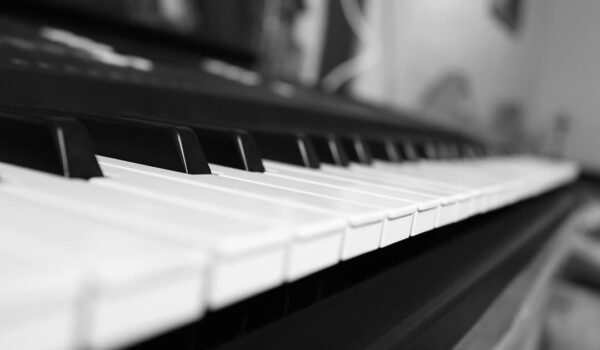When Paloke Kurti (1860-1920) composed “The Unity of Albania March” in 1878, the country had yet to establish a classical or professional music tradition. Kurti, a self-taught musician from Shkodra, was known for his vocal and instrumental talents, but his expertise lay primarily in popular, rather than classical, music. Albania’s first significant steps toward developing a professional music tradition came in the early 20th century, with Franciscan priest Padre Martin Gjoka (1890-1940) leading the way. Gjoka holds the distinction of being the first Albanian composer to write classical music across multiple genres. His works, including polyphonic and choral pieces as well as an unfinished symphony, followed the classical traditions of Bach and Handel. Gjoka also showed a keen interest in traditional Albanian folk music, especially from the mountainous regions, which were less influenced by Eastern music. However, due to the absence of musical institutions and formal education, his compositions remained largely inaccessible, performed mostly by amateurs in small circles.
Despite these challenges, Gjoka and a few other musicians helped turn Shkodra into a hub of Albanian musical activity between the two World Wars and beyond. The city was home to Albania’s first orchestral and choral groups, as well as its earliest musicals. These developments later spread to the southern city of Korça, and Shkodra became the educational center for the first generation of Albanian composers in the mid-20th century.
One of the most prominent of these composers was Preng Jakova (1917-1969). Educated at the Santa Cecilia Conservatory in Rome, Jakova primarily composed vocal music. His operas “Mrika” (1958) and “Scanderbeg” (1968) earned him recognition as the founder of Albanian national opera. His lyrical compositions were heavily influenced by the Italian bel canto tradition of the 19th century, while also incorporating elements of Albanian folk music.
Perhaps the most renowned figure in Albanian classical music is Çesk Zadeja (1927-1997), often referred to as the “father of Albanian classical music.” A native of Shkodra, Zadeja studied music composition at the P.I. Tchaikovsky Conservatory in Moscow. Upon returning to Albania, he played a pivotal role in shaping the country’s musical landscape, contributing to the founding of the Music Conservatory of Tirana, the Theatre of Opera and Ballet, and the Assembly of Songs and Dances. As a professor at the Academy of Arts in Tirana, Zadeja mentored a generation of Albanian composers. His first symphony, written in 1956, marked the beginning of a classical music tradition in Albania. Over the course of his career, he composed ballets, concertos, symphonic works, and chamber music, blending sophisticated musical techniques with elements of Albanian folk traditions.
The latter half of the 20th century saw further challenges for Albanian music, as the country lacked a strong professional tradition. As a result, many composers focused on classical and romantic styles. Notable figures from this period include Tish Daia (b. 1926), composer of the first Albanian ballet “Halili and Hajria”; Nikolla Zoraqi (1928-1991), known for his contributions to opera and ballet; and Feim Ibrahimi (1935-1997), who played a key role in the development of Albanian musical theater with his piano concertos during the 1970s and 1980s.
With the fall of communism in 1990, Albanian music faced new opportunities and challenges. The dissolution of state control allowed for the emergence of new musical organizations and structures. Two key groups, “The Society of Music Professionals” and “The Society of New Albanian Music,” were established in the early 1990s, helping to integrate Albanian composers into the global music scene. These organizations also initiated important events, such as the annual Festivals of New Music and International Chamber Music concerts.
Today, prominent Albanian composers like Aleksander Peçi (b. 1951), Sokol Shupo (b. 1954), Vasil Tole (b. 1963), and Endri Sina (b. 1968) continue to push the boundaries of Albanian music, blending tradition with contemporary influences. Their contributions mark the latest chapter in Albania’s ongoing journey toward establishing a vibrant and recognized classical music tradition.

